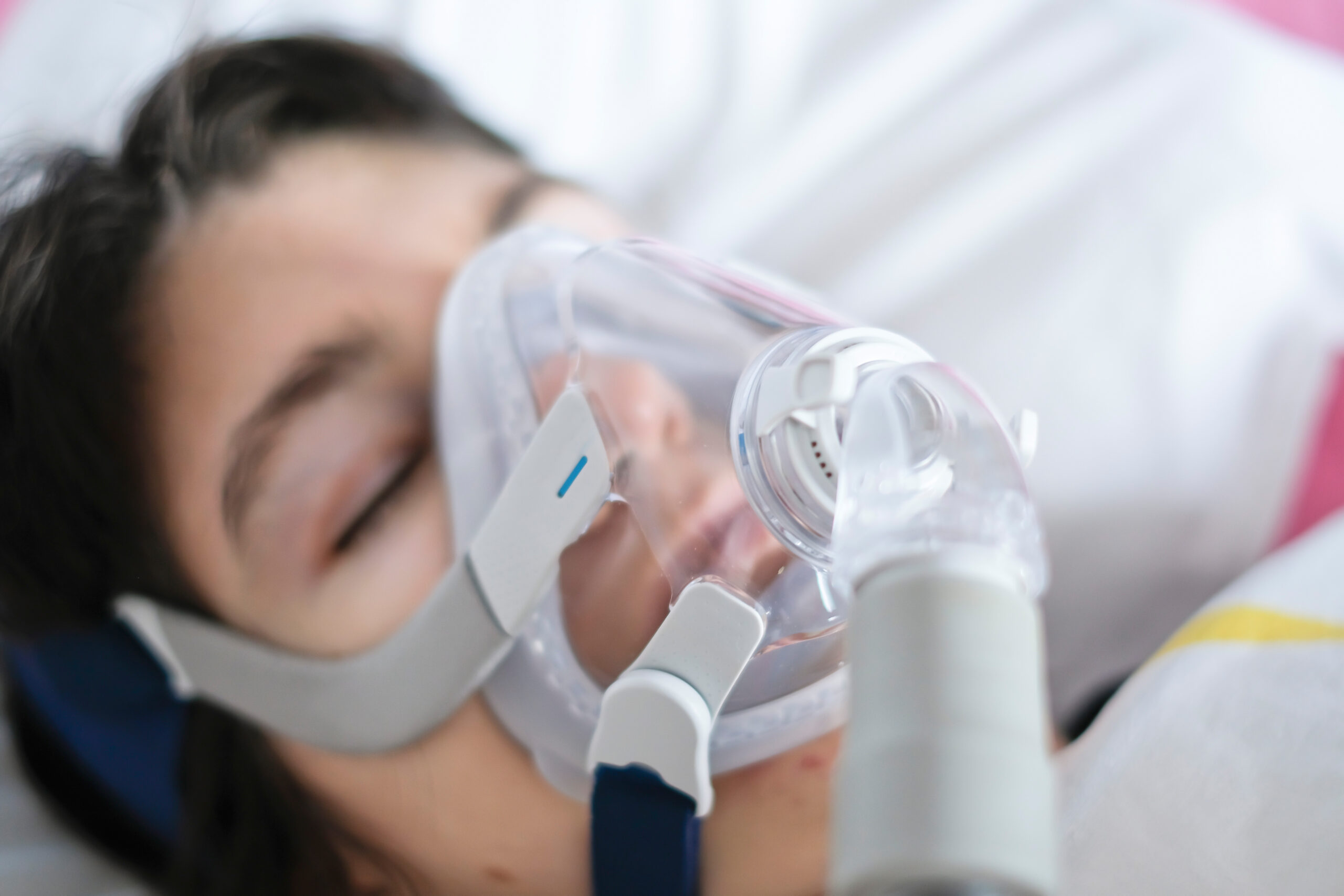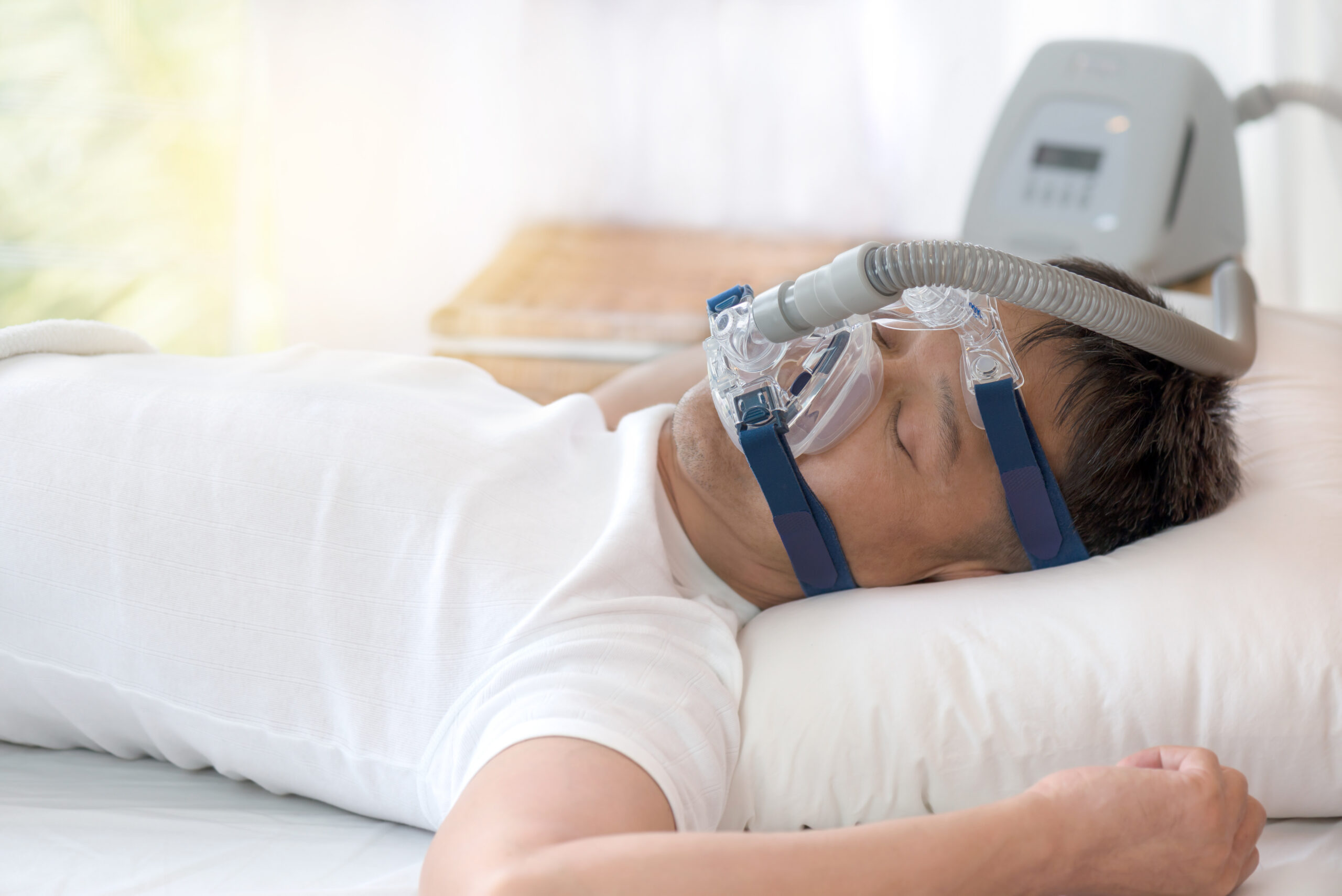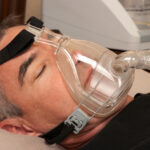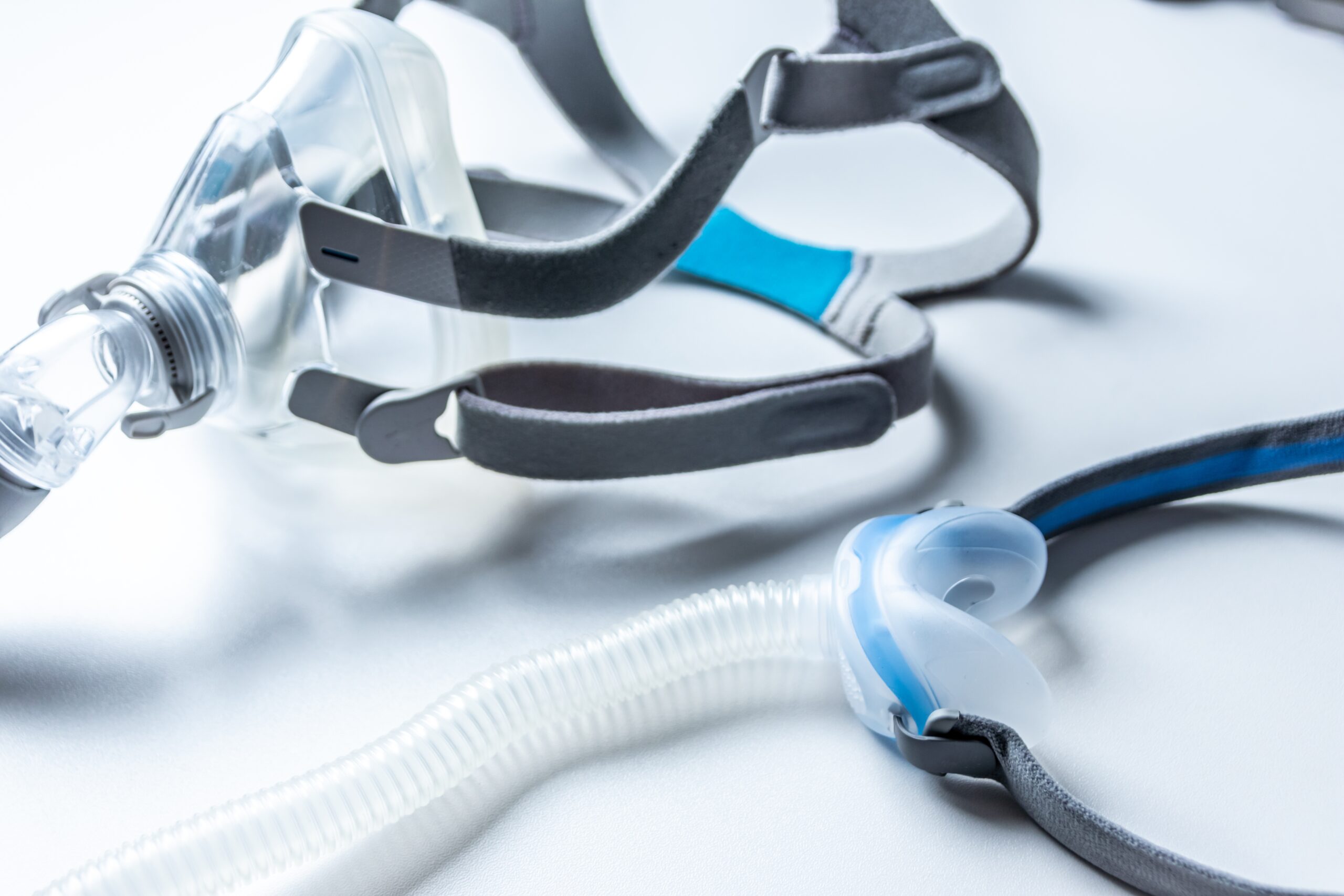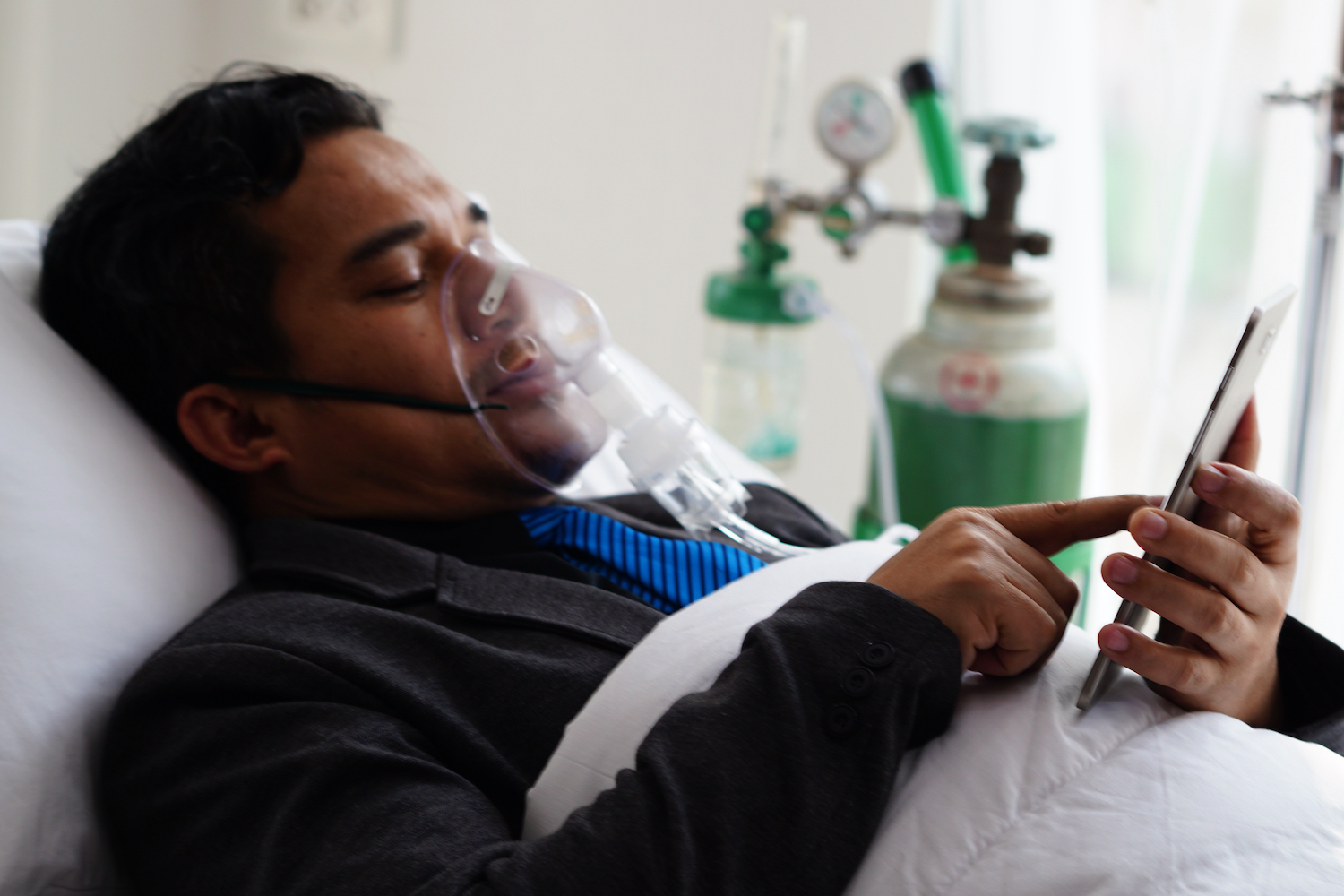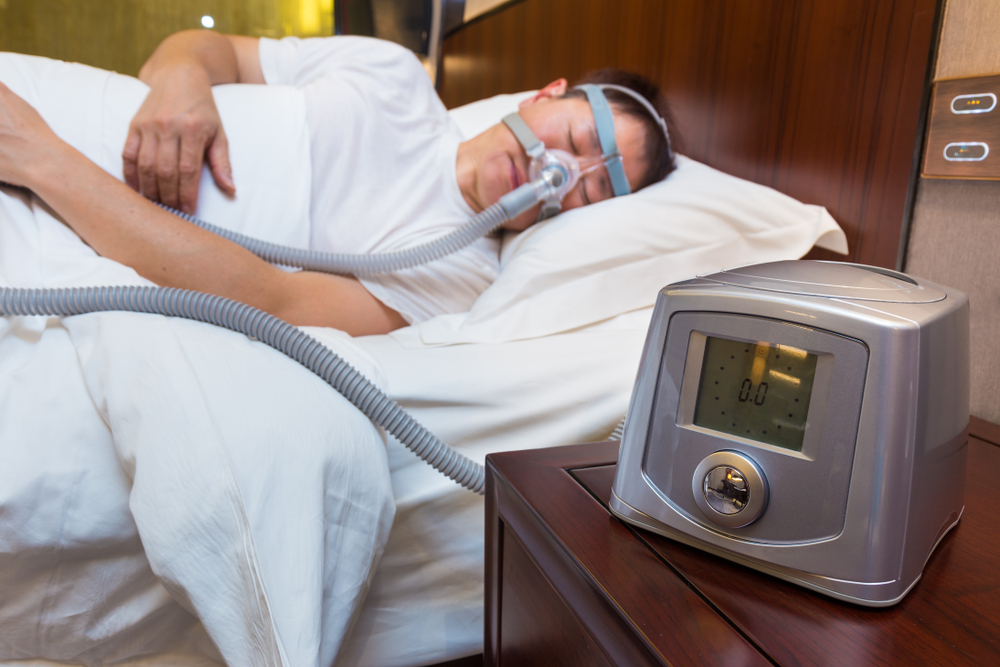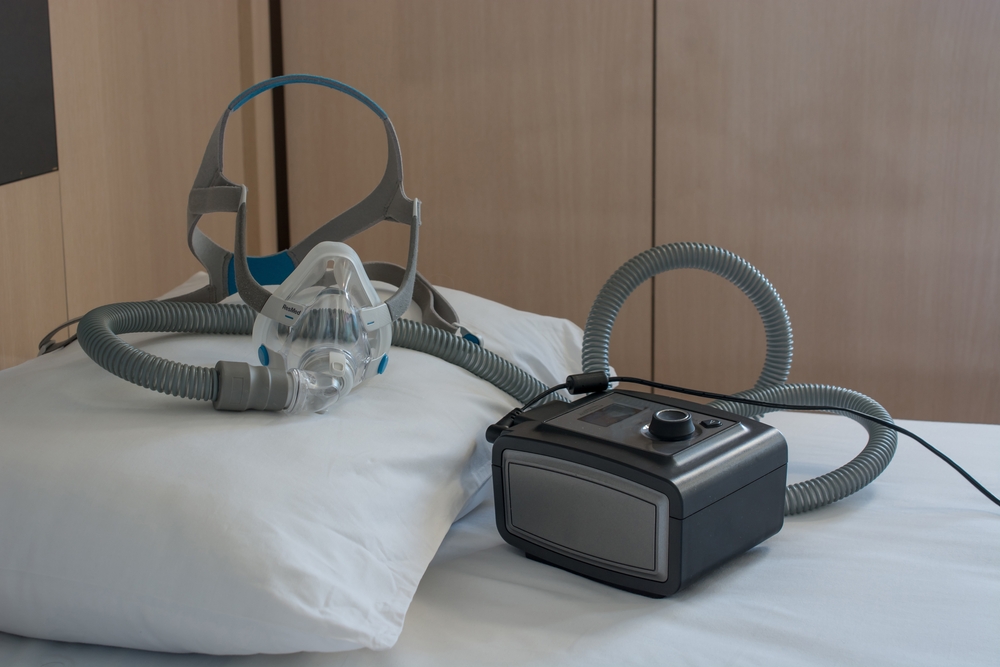If you’ve been diagnosed with obstructive sleep apnea (OSA) or central sleep apnea (CSA), your doctor may recommend use of a continuous positive air pressure (CPAP) machine to help you sleep with fewer disturbances.
For this therapy to be effective, your CPAP machine must be calibrated to deliver the correct air pressure to meet your individual needs. This calibration is called CPAP titration and usually happens during a study in which you will be monitored while using a CPAP machine as you sleep.
What Happens During a CPAP Titration Study?
At the start of the study, a medical professional will fit a CPAP mask to your face. Additionally, sensors will be attached to you to track your sleeping and other important information such as oxygen levels and heart rate. You’ll be placed in a room to relax and eventually sleep.
Once you fall asleep, the study will begin. Air pressure levels during the study initially start low. Air pressure will gradually increase on your CPAP device until the level of pressure that acceptably relieves your sleep apnea is found. This level of pressure then becomes the set pressure for your CPAP machine at home.
Types of CPAP Titration Studies
The gold standard for CPAP titration is a full-night study at a medical facility.
In certain cases, the initial sleep study to determine the nature of a person’s sleep disturbances and the CPAP titration study can happen on the same night. During these “split-night” sleep studies, the first portion of the study determines the nature of the sleep disturbance and the second portion is spent titrating CPAP levels.
The advantage of a split-night sleep study is that a patient does not need to participate in two separate studies on two nights but can instead be diagnosed and titrated for CPAP on the same night. However, there are also disadvantages to a split-night sleep study as well.
“When a split-night study is conducted, less total data are recorded for the diagnostic and CPAP titration portions of the study. Since OSA severity can vary based upon sleep stage, the diagnostic data therefore may not reflect the true severity of the disease state. Because of this, we usually only do split-night studies when sleep apnea is severe in the first couple of hours of recording.” – Dr. Gerard Meskill
In other cases, titration can be done at home. A specific kind of PAP machine called an automatic positive airway pressure (APAP) device can automatically adjust air pressure to maintain unobstructed breathing for the user. These devices can be used by a person at home to titrate the necessary level of air pressure.
At-home CPAP titration with an APAP machine is only recommended for people who have uncomplicated obstructive sleep apnea. Evidence suggests at-home titration with APAP is just as successful as laboratory CPAP titration for those with uncomplicated OSA.
Who Needs a CPAP Titration Study?
Typically, a CPAP titration study is prescribed after a person receives a diagnosis of sleep apnea or another sleep-related breathing disorder. Usually, these disorders are diagnosed through polysomnography (PSG), which is an overnight sleep study, typically conducted in a lab setting, or by home sleep apnea testing (HSAT), which is an unattended sleep study conducted in a person’s home, rather than in a lab.
If the sleep study shows that a person has sleep apnea, then, depending on the nature of the sleep apnea, a doctor may recommend CPAP therapy. At this point, the person will need to participate in a second overnight study—a CPAP titration study—to determine what level of air pressure the CPAP machine must deliver to reduce breathing disturbances.
When to Talk to Your Doctor About a CPAP Titration Study
If you have sleep disturbances or suspect you have sleep apnea, you should talk to your doctor so that they can help find the right treatment for you. A CPAP titration study may be part of the process of establishing treatment.
If you have already completed CPAP titration and are using a CPAP machine when you sleep, but feel that the therapy is not sufficiently treating your sleep disturbances, you should contact your doctor. It may be necessary to adjust the settings on your machine to better meet your needs.
How to Prepare for a CPAP Titration Study
To prepare for an CPAP titration study in a facility, bring what you would typically need to feel comfortable for an overnight excursion including your toothbrush and comfortable sleep clothing. You may also want to bring items that help you relax at night such as a book. In most cases, guests are not permitted. In pediatric cases, a guardian is expected to be present and is given a cot or similar sleeping provisions.
During the day before your study, follow your normal routine and avoid caffeine after noon and napping. Doing so will help facilitate sleep during the study. You should also inform your doctor of any medication you’re taking in case it may interfere with the study.
Understanding CPAP Titration Study Results
Your CPAP titration results will determine the correct air pressure for your CPAP machine. After your doctor has interpreted your study results, you will be instructed on how to get a CPAP machine and mask so you can start your CPAP therapy at home.
After one to eight weeks of home use, you will likely have a follow up with your doctor to discuss how the therapy is going and make any necessary adjustments to the machine.
In rare cases, your titration results may yield an “inadequate” rating, which means an pressure level adequate to treat your sleep apnea could not be found. In this case, you may undergo a second titration study after your doctor identifies and addresses reasons for the first study’s failure. Your doctor may also recommend alternative forms of PAP therapy or other treatment options for your sleep apnea.
Still have questions?
Sleep apnea products can be confusing. If you need individualized assistance, send us an email at [email protected] with your questions and we'll help find the best fit for you.



